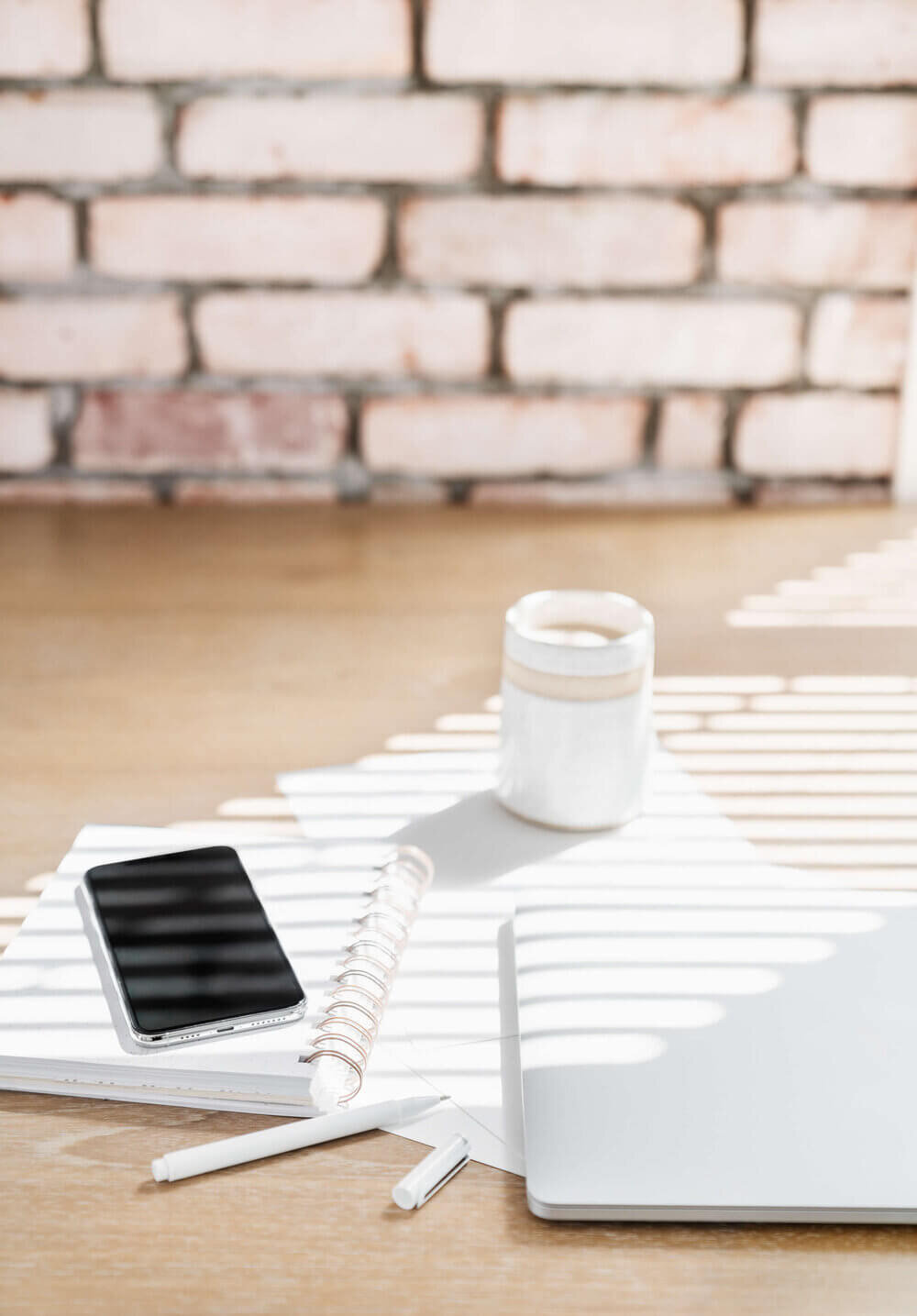Why A Social Media Break Might Be The Best Thing You Do In 2023
This page may contain affiliate links. As an Amazon and Rewardstyle affiliate, we may earn a small commission for any purchases made through these links. Click here for the disclosure statement.
2022 was the year of many things, one of which being scrolling endlessly on your phone as you lay on your couch, bored from the day. That’s why this year is the perfect time to take that social media break you’ve always said you’ll do, but never actually accomplish.
Average Time Spent on Social Media
While everyone’s social media time is different, you can see your specifics by checking your screen time under ‘Settings’ on your phone to see the exact breakdown of time spent on each app.
As an entire population, we can pull some general stats about how much time people spend on social media sites across the United States. Ready for the startling truth? Here are the stats:
The average time spent on social media in 2019 was 2 hours and 22 minutes.
The average US adult spends 38 minutes a day on Facebook.
The numbers rise with people ages 16-24 spending about 3 hours a day on social media.
Projected numbers estimate that an average adult will spend 6 years and 8 months of their lives on social media.
Needless to say, that’s a lot of time staring at our phones. We all need a break sometimes from the endless scrolling, liking, and subscribing. Now is your time. Why take the break? If those statistics weren’t startling enough for you, look at what we have to say about the matter.
How Social Media Affects Mental Health
Sure, there are positives to social media. These social sharing networks were created to connect friends, loved ones, and work associates together in a way that had never been seen before. Facebook started as a way to connect college students with one another. (Does anyone remember having to have a student email to sign up?)
Social media took traditional communication and sent it into a warp speed overdrive. Suddenly, at your fingertips, was the amazing ability to reach hundreds of connections in a matter of moments. The downside? The ability to reach hundreds of connections in a matter of moments.
What started as a way to connect and communicate in a positive manner, quickly became a way to sell ads, market unsafe products to vulnerable people, and create a harmful space for youth and adults alike, littered with self-esteem ruining Photoshop to cyber bullying. Before long, life without social media seemed unfathomable.
““What started as a way to connect and communicate in a positive manner, quickly became a way to sell ads, market unsafe products to vulnerable people, and create a harmful space for youth and adults alike, littered with self-esteem ruining Photoshop to cyber bullying.””
There’s no denying that social media has an effect on our mental health. There are the obvious facts that we notice, like how the presence of our phone distracts us from getting any actual work done. Or, that addictive feeling of checking our phones to see if we have any new notifications.
Then, there are more hidden mental health effects. Ever spend a little too long scrolling through Instagram and end up feeling worse after? You sometimes can’t pinpoint exactly why it is that you feel bad, but you know that it had something to do with the scrolling you just did. Often, it’s not one specific trigger that throws us off for the day.
It can be multiple posts that make you go from having a good day to a bad day. You may feel like your brain shuts off as you endlessly scroll, but it doesn’t. Your brain continues to process the images and content that you see and send negative talk to your brain. It may be criticizing you as you scroll, without you even realizing it. From comparison to lacking attention and everything in between, social media has surely brought upon negative thinking habits that a little break from the apps could rid us from.
The Signs It’s Time To Unplug
Social media isn’t the best for our mental health. However, when do we know when it’s time to “unplug?” If you find yourself doing any of these things, it may be time for a social media cleanse:
Going on autopilot
Ever get bored of scrolling on Instagram, close out the tab, just to re-open it 15 seconds later? This can happen when we endlessly scroll without intention. Our brains go on autopilot and our fingers take over. Take back control of your life by “unplugging” when this starts to happen.
If you’re comparing Yourself to Others
A little bit of comparison is a part of being human. When comparison causes self-doubt, insecurity, or lack of self-esteem, it becomes less about inspiration and more about the feeling of inadequacy. If you find that the comparison you’re feeling after looking on social media is all encompassing, then it’s time to step back.
““When [social media] comparison causes self-doubt, insecurity, or lack of self-esteem, it becomes less about inspiration and more about the feeling of inadequacy.””
If you have to post about everything
Do you find that you can’t sit through an entire dinner without checking your phone? If you can’t leave the house without posting an update for your followers, it may be time to re-think things. Learn to enjoy the adventures you go on in life again without feeling the need to post about it. Experience life and leave your phone behind.
How To Unplug From Social Media
If any of those signs sound like you, a social media detox may be just what you need. So how do you take a break from Facebook, Instagram, or other social media accounts? Here are a few steps to consider.
Delete or Silence the Apps Causing You Harm
If you usually find yourself comparing and getting sad after using Instagram, break up with it. Pinterest always inspires me and I’ve never left the site feeling down. Keep Pinterest. It’s okay to keep apps that make you genuinely happy.
Set Your Social Media Boundaries
Start with a plan. Are you deleting social media apps from your phone? Are you allowed to check in only on your laptop or computer? Are you only turning off notifications? Any step towards quitting social media is a good one, so figure out what you can healthily manage at this time.
Set Your Timeline
How long will this social media break last? One week? One month? Six months? Set your timeline and tell your friends. Accountability can help you stay motivated to meet your goal and prevent you from reverting back to old behaviors.
Decide the Outcome
Perhaps taking a break is simply not enough. What is the end goal of taking a break? Will you return to social media? If yes, what will you change? If you find that after a month, you no longer are interested in checking your accounts, will you delete social media entirely? The power to control your online intake is fully within your hands.
Pros of Taking a Break from Social Media
The amount of time that opens up for you when you remove social media from your life is astonishing. You will find that you have time to focus on yourself, indulge a bit in self-care, and do the things you’ve been meaning to but never had time for.
Since we spend so much time on our social media apps, we lose a few hours out of our days, you’re now taking those hours back.
Also, you may find that you are able to sleep better. If you’re the type of person to have your phone in your hand 24/7, even as you go to lay down in bed, you will notice that without social media you fall asleep easier. Staring at our phones give off blue light that disrupts our circadian rhythm. When you rid yourself of blue light, you’ll soon see that you fall asleep faster and sleep better throughout the night.
You may also get less headaches from the eye strain of staring at your phone constantly. Instead, you’ve been focusing on the world around you, near and far, rather than just five inches from your face.
Here’s The Steps You Should Take After Your Break
After you finish your social media break, don’t fall right back into the same patterns as before. Set boundaries for yourself so that social media becomes an enjoyable place to express yourself.
Unfollow or soft block accounts that don’t make you feel good and only follow accounts that do
When you go back on social media, you’ll find that you notice more quickly the accounts that do and don’t serve you. Unfollow the accounts that make you feel bad or don’t inspire you. If you’re afraid to potentially rock the boat (especially when it comes to friends and family), then mute or soft block the account so that you can’t see their content on your feed.
Set limits for yourself
You can do this by setting alarms on your screen time for social media apps. This will limit your social media usage down to the desired time you want. Without the constant data stream at your fingertips, you’ll find that your hours online go down quite naturally. Consider this an easy way to not slip back into old habits.
Keep notifications off
Another good way to allow social media back into your world, but still keep a healthy distance, is to keep the notifications turned off. That short beep or buzz we hear when a notification pops up stops us from what we’re doing in the moment amd breaks our concentration. These push notifications have created an addiction that can only be satisfied when you check to see the most recent posts on social media.
Instead, with the notifications turned off, you can check your notifications at a time that works for you. The notification will still be there when you’re ready to look. (Of course, your phone setting can be adjusted to always allow important messages and calls from friends and family to come through.)
Alternatives to Social Media
Now that the no social media break is over, you may find that you want to delete your social media accounts completely. That’s great! You’ve really grown from this. However, if you’d like a few alternatives to social media to keep your fingers tapping, try these out:
Ello
Ello is an ad-free social media website. It is similar to Pinterest in that it is used to show off art and other creative pieces developed by users. This makes Ello a wholesome space to spark creativity and inspiration that is free of pesky ads.
Listen to A Podcast
You’ll always leave a podcast having learned something new, while you can’t say the same for Instagram or Facebook. Podcasts can be catered to the shows you like and are a great replacement for social media.
Start a New Book (Or Pick Up An Old One)
Old fashioned, we know, but reading is an awesome alternative to social media. Find a book you are really invested in and you’ll want to check back in with your book, instead of your social media apps, to see what your favorite characters are up to. Also, reading forces you to think creatively and push yourself to problem solve and ask questions. You’re actually using your brain when you read.
So, what do you say? Are we in this together? Set your boundaries on social media, take a break, and discover new apps, outlets, and self-care that can bring your year to the next level.










Subconscious programming, known as attachment style, affects everything from friends we choose to our partners and plays a role in successful relationships.